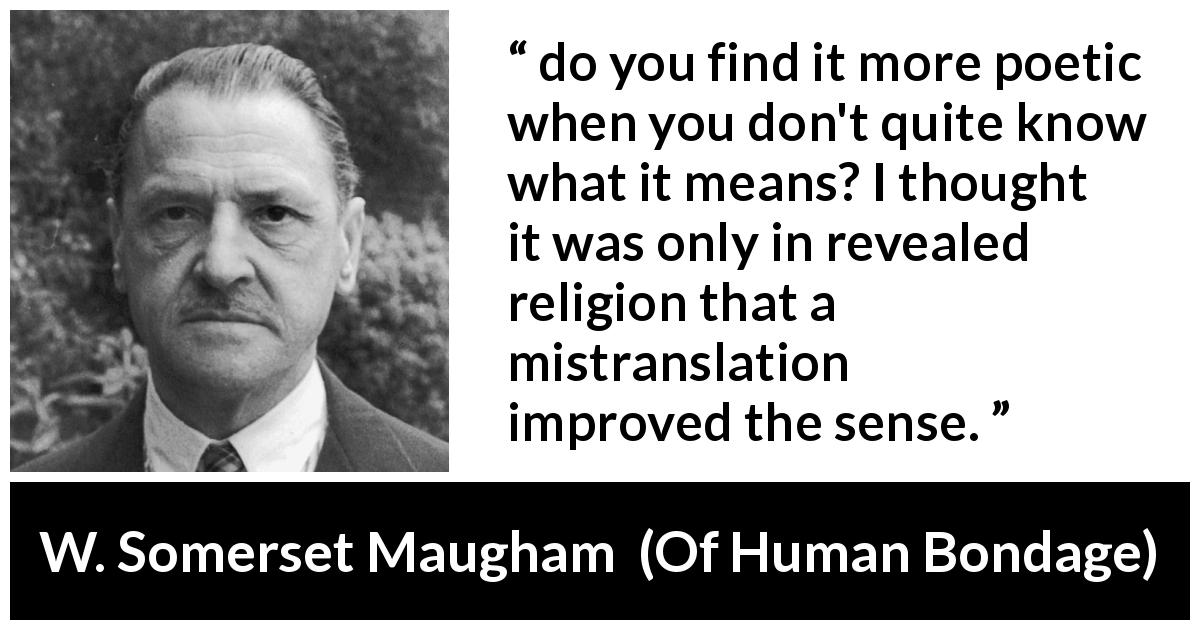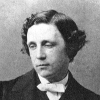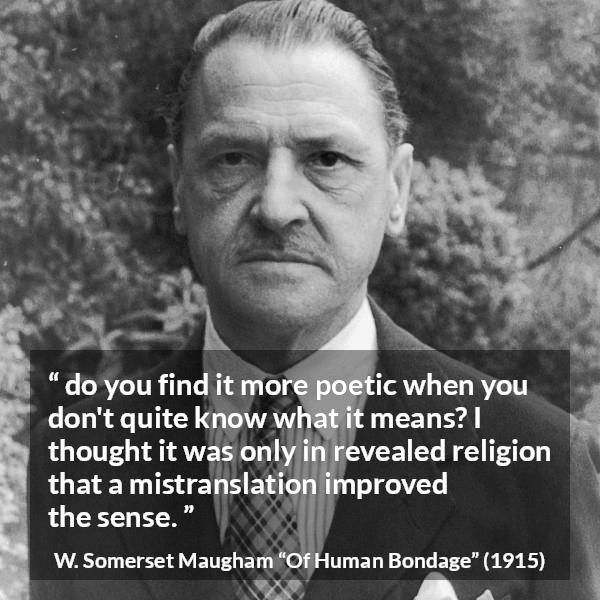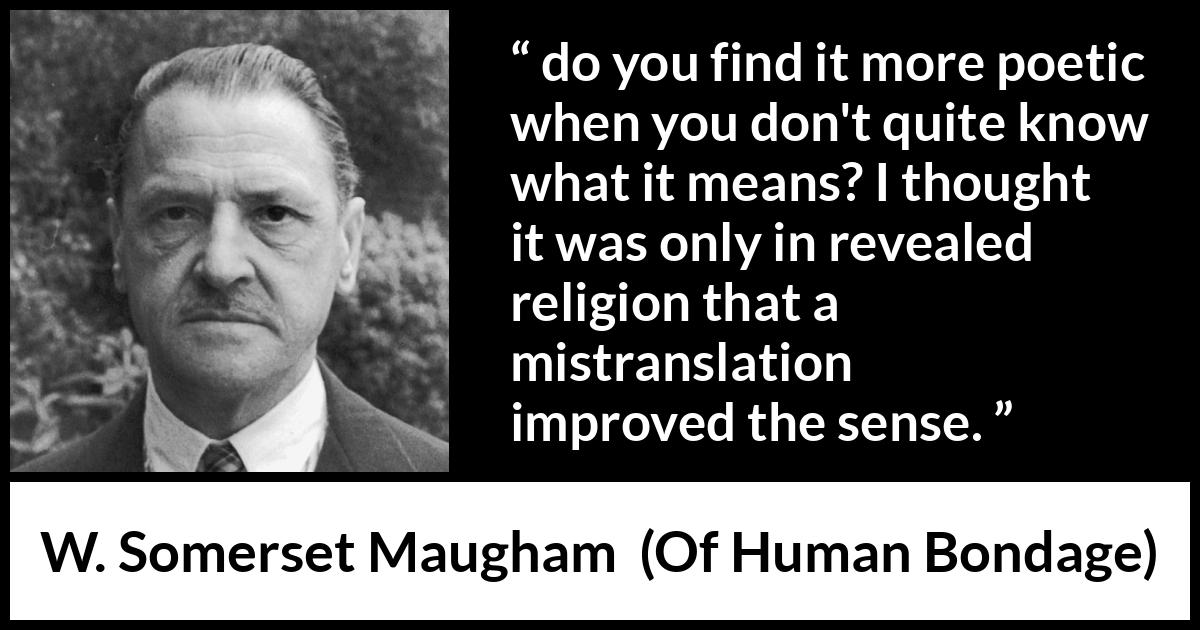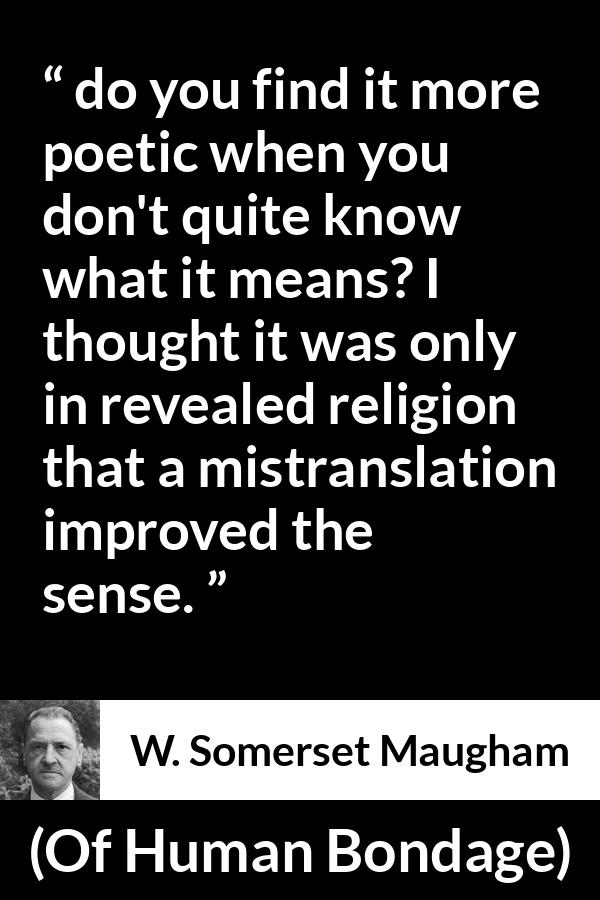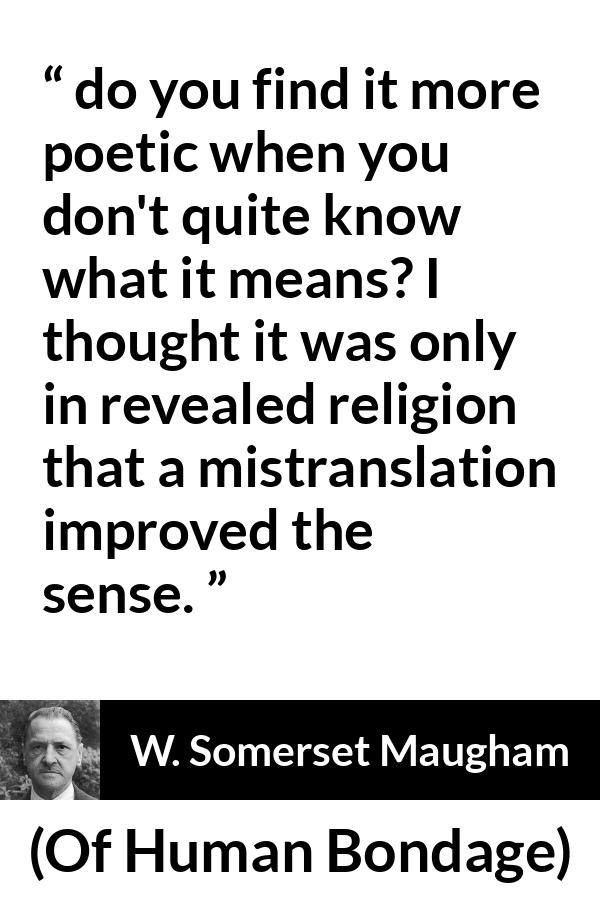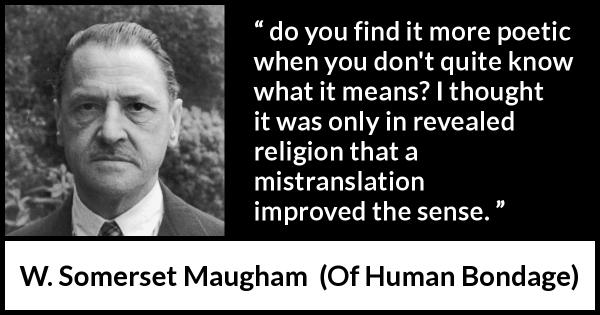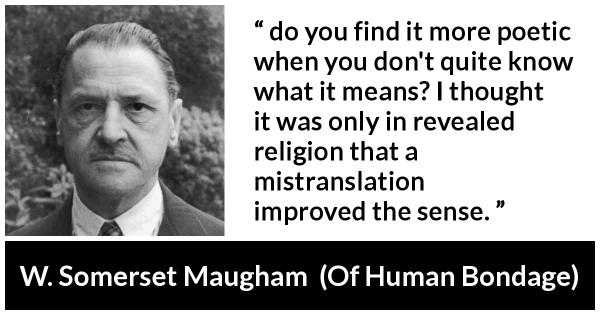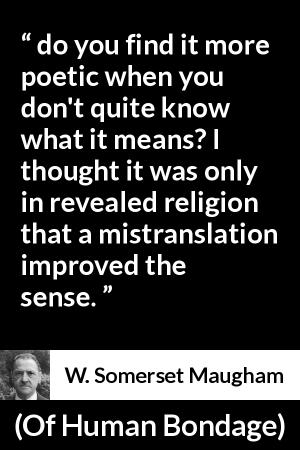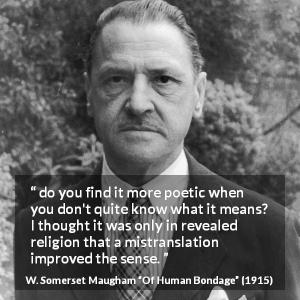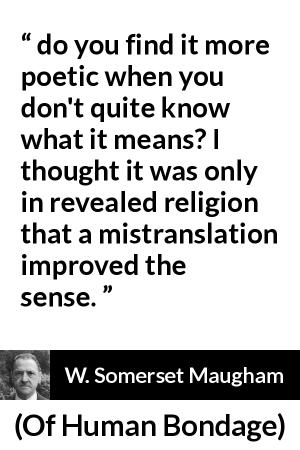“ do you find it more poetic when you don't quite know what it means? I thought it was only in revealed religion that a mistranslation improved the sense. ”
W. Somerset Maugham, Of Human Bondage (1915). copy citation
| Author | W. Somerset Maugham |
|---|---|
| Source | Of Human Bondage |
| Topic | meaning style translation |
| Date | 1915 |
| Language | English |
| Reference | |
| Note | |
| Weblink | http://www.gutenberg.org/cache/epub/351/pg351-images.html |
Context
“Philip could not help seeing that Hayward looked a perfect fool, and Hayward had not the sense to hold his tongue; in his irritation, his self-assurance undaunted, he attempted to argue: he made wild statements and Weeks amicably corrected them; he reasoned falsely and Weeks proved that he was absurd: Weeks confessed that he had taught Greek Literature at Harvard. Hayward gave a laugh of scorn.
"I might have known it. Of course you read Greek like a schoolmaster," he said. "I read it like a poet."
"And do you find it more poetic when you don't quite know what it means? I thought it was only in revealed religion that a mistranslation improved the sense."
At last, having finished the beer, Hayward left Weeks' room hot and dishevelled; with an angry gesture he said to Philip: "Of course the man's a pedant. He has no real feeling for beauty. Accuracy is the virtue of clerks.” source
"I might have known it. Of course you read Greek like a schoolmaster," he said. "I read it like a poet."
"And do you find it more poetic when you don't quite know what it means? I thought it was only in revealed religion that a mistranslation improved the sense."
At last, having finished the beer, Hayward left Weeks' room hot and dishevelled; with an angry gesture he said to Philip: "Of course the man's a pedant. He has no real feeling for beauty. Accuracy is the virtue of clerks.” source
